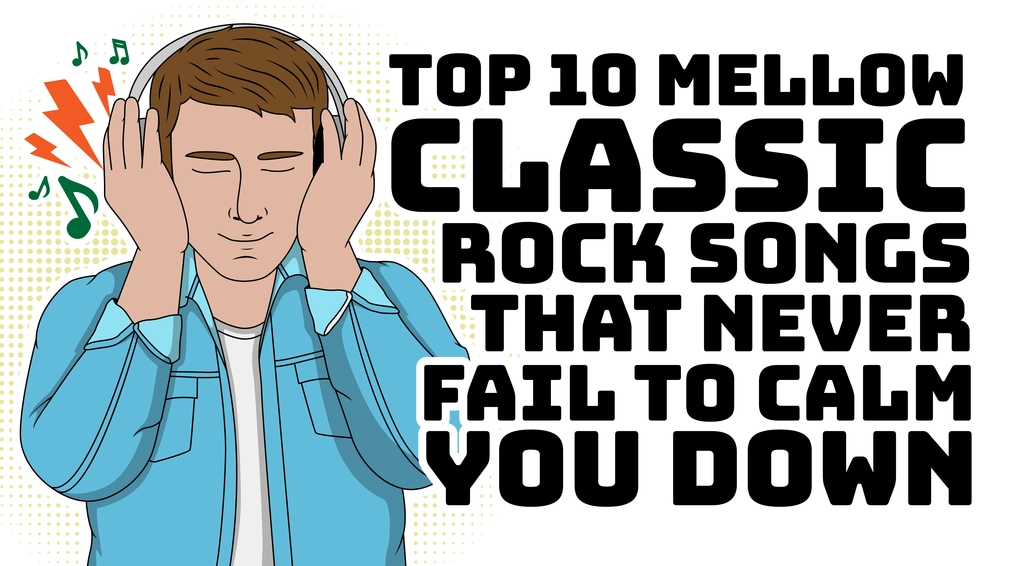There are a few reasons why rock music may calm a person down. First, the rhythm of the music can be soothing and help to slow down a racing heart. Second, the lyrics of many rock songs often deal with personal struggles and provide a sense of comfort and understanding.

- What are the benefits of listening to rock music?
- Rock music has been shown to have a number of benefits for those who listen to it. These benefits include reducing stress, improving mood, and increasing cognitive function. In one study, rock music was found to be more effective than classical music in reducing stress and anxiety.
- Does listening to music reduce stress?
- Contemporary research suggests music has significant power to help reduce stress and anxiety, relieve pain, and improve focus among many more benefits. How can listening to music reduce stress? Stress — the feeling of emotional tension, overwhelm, or feeling unable to cope — affects us mentally and physically.
- Does listening to metal music help with depression?
- Listening to metal music can benefit both your body and mind, and may even help your immune system, according to a small 2002 study. But this fact could be said for any music you like. Depression is a mental health condition that causes low moods and loss of interest in things you used to enjoy.
- Is extreme music soothing?
- However, the study does note that the soothing effects of extreme music may be unique to fans of the genre. All of the participants were self-identified metal connoisseurs who weren’t undergoing any actual symptoms of distress.
- How does rock music make you happy?
- Rock Music Increases the Happy Hormone, Oxytocin The happy hormones we get from listening to our favourite music can drip-feed us motivation while resonating as rewarding. This motivation mostly boils down to the release of the peptide hormone oxytocin, which plays a pivotal role in our complex behaviour.
- Why do introverts like metal music?
- The shy ones see music as a way to look for contemplation and produce a sensory response. The introverts are in touch with their creative side and at ease with their personalities. A recent study in Psych Central also shows that rock- and heavy metal fans are creative and not particularly outgoing.
Does rock music help depression?
Rock music can act as an effective tool in stress management by increasing the production rate of dopamine, effectively reducing levels of stress hormones. Rock music has also been shown to increase the production of serotonin which can help fight depression, anxiety, panic, and anger.
- How music can help fight depression?
- Usually therapists select several music combinations that are customized for each patient. Music builds confidence of a passive patient; in addition, it stimulates our bodies to move, thus calling for physical activity that helps to avert depression.
- How does music help with depression?
- Music has a powerful place at all stages of life. Within hospice care, music therapy can be used to help patients relax, as well as to manage anxiety, depression, and even pain. Taylor Parker, MT-BC, music therapist with McLaren Hospice Lansing …
- Does music therapy for depression really work?
- by improving mood and encouraging connection and self-expression. Although music therapy is not a cure for any mental health condition, it can be an effective and enjoyable tool for reducing the symptoms of numerous conditions, including depression and anxiety.
Does rock music increase adrenaline?
There’s stronger evidence that it can affect mood and heart rate and respiration rate. So, fast stimulating music stimulates the production of adrenaline and other hormones that get your heart racing faster and your pulse increases and blood pressure increases and then soothing, relaxing music has the opposite effect.

What are the emotions of rock music?
Rock ‘n’ roll is a form of music that is primal, passionate, and rebellious. It expresses the emotions of angst, anger, and lust in some of the only ways that are accepted by society. The history of this edgy music genre dates back to the 1950s.






